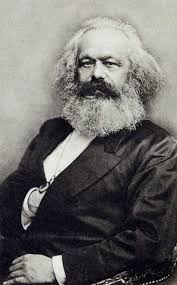Lesson One: Karl Marx and Communism
1. Introduction
The Rejection of Liberalism: Soviet Union
Issue Question: Is resistance to liberalism justified?
- Appreciate how citizens and citizenship are affected by the promotion of ideological principles
- Appreciate how citizens and groups may adhere to various ideologies
- Analyze ideological systems that rejected liberalism
- Examine how ideological conflict shaped international relations after World War II
- Examine perspectives on the imposition (forced acceptance) of liberalism
- Examine the extent to which modern liberalism is challenged by alternative ideas
- Evaluate the extent to which resistance to liberalism is justified
Duration: 1 blocks (80 mins + homework)
Karl Marx, along with other thinkers of the 19th century, experienced the turmoil of the Industrial Revolution in his native Germany. Industrialization brought about terrible living and working conditions. Men, women, and children worked long hours in unhealthy conditions for minimal pay. The utterly desperate conditions of the large numbers of working class poor were in stark contrast to the wealth of the few capitalists. It was a time characterized by inequality in which only the wealthy were really free. Karl Marx, a socialist thinker, argued that laissez-faire capitalism resulted only in slavery for the working classes. Marx rejected liberalist values and promoted wholly collectivist values. Marx developed the socialist ideology of communism. Until about 1990, communism existed in the former Soviet Union (now Russia) and in most Eastern European countries. Today, communism exists in China, Vietnam, North Korea, and Cuba.
Karl Marx (1817-1883)
|
|
|
|---|